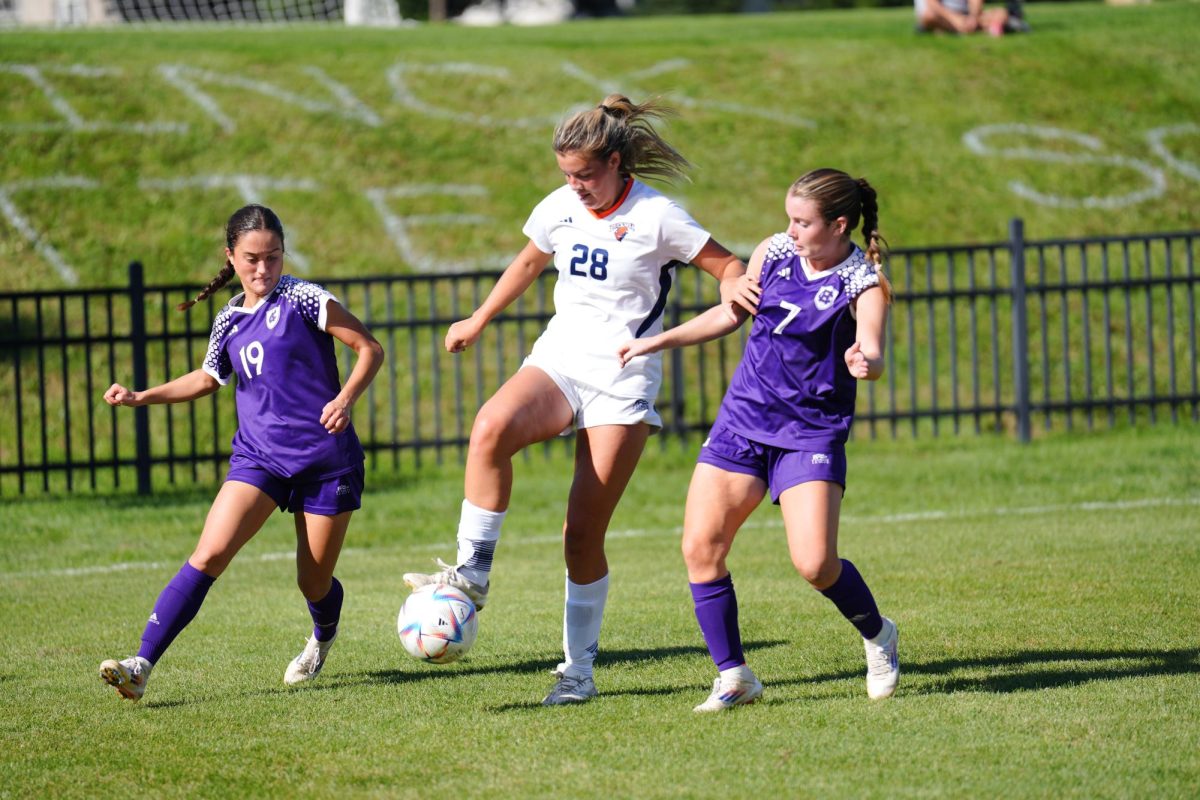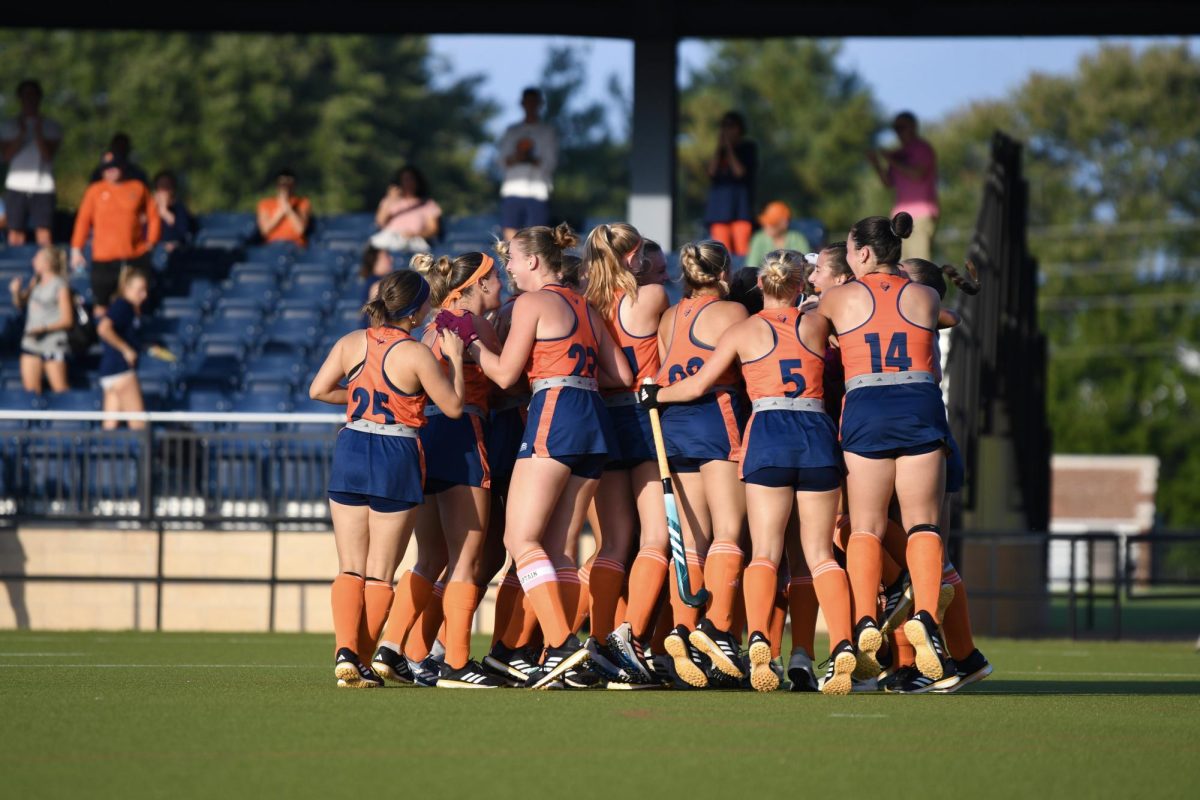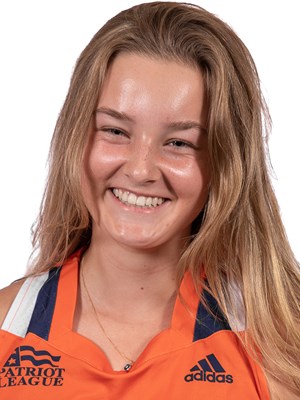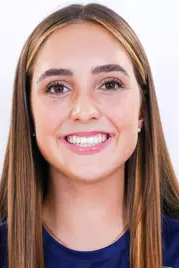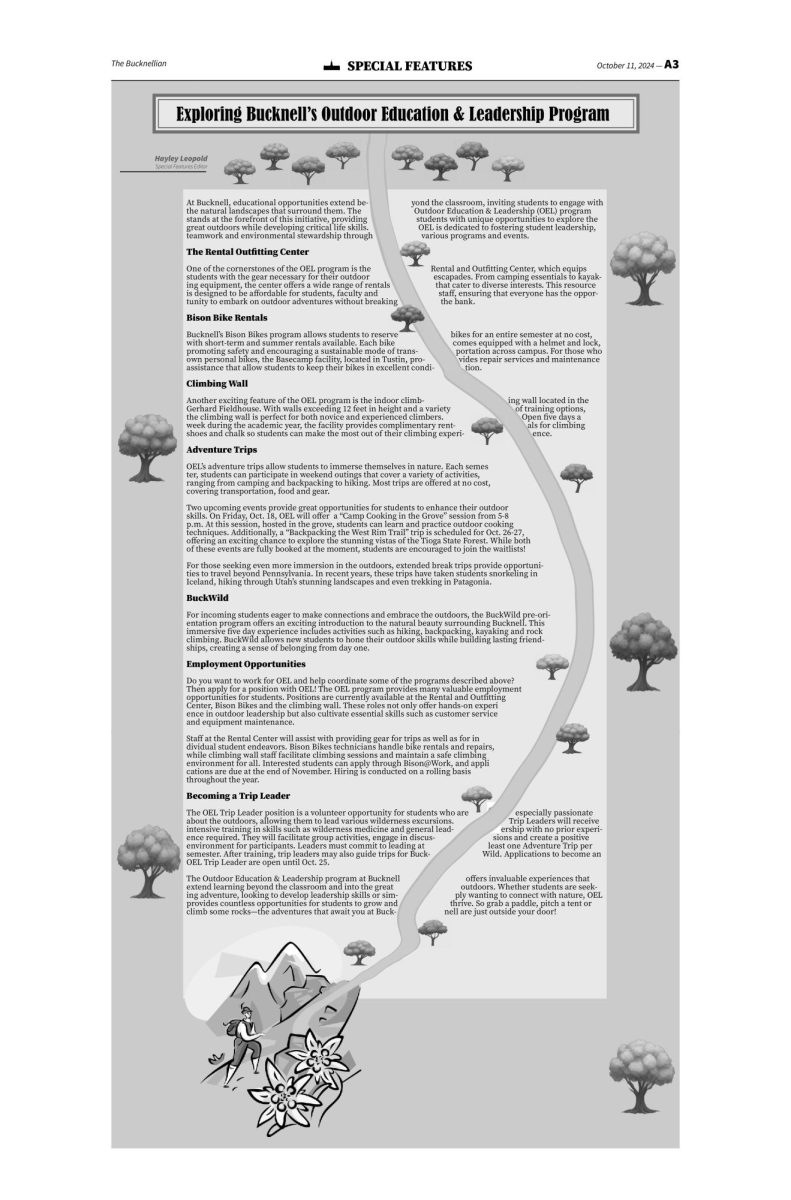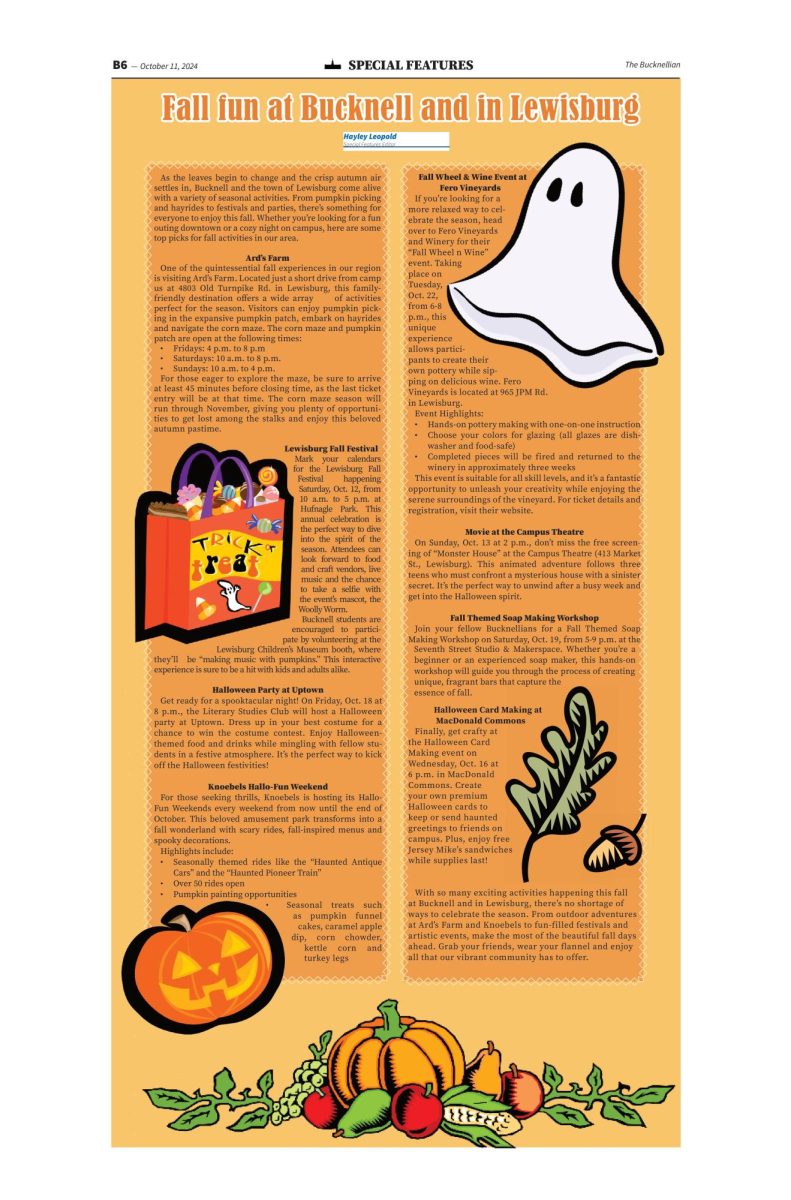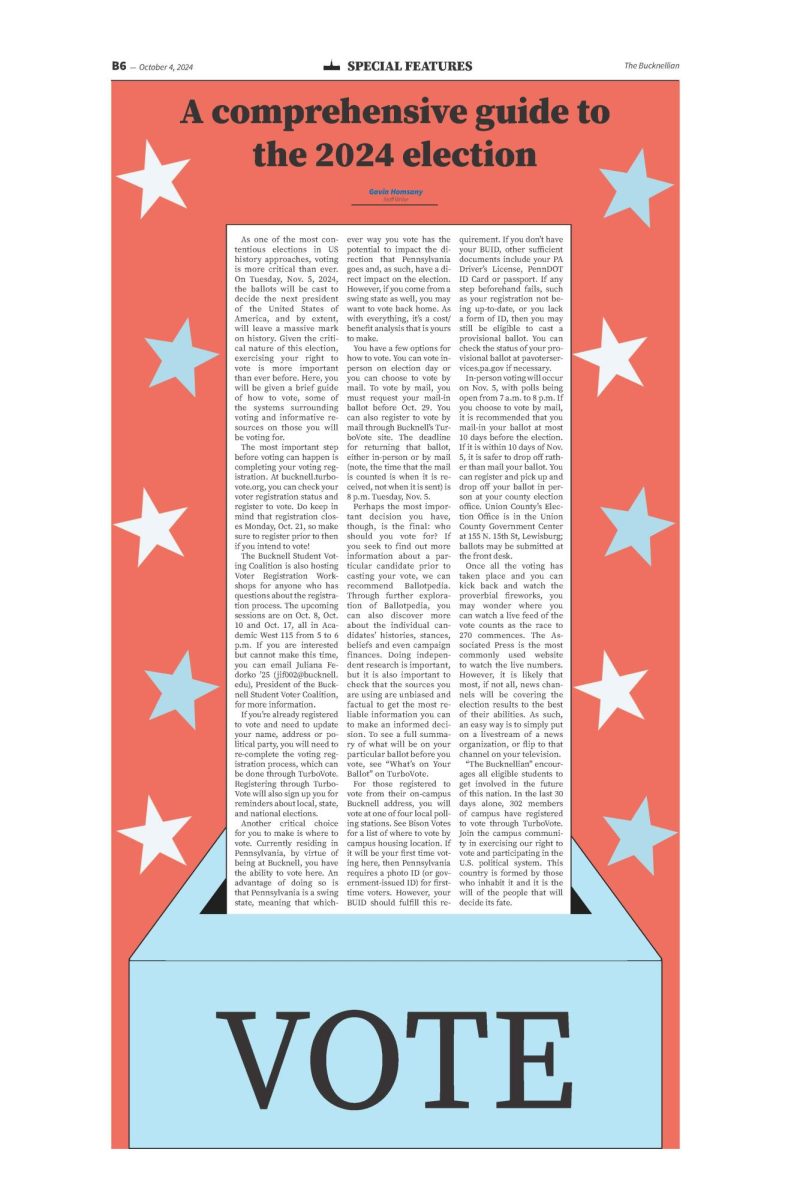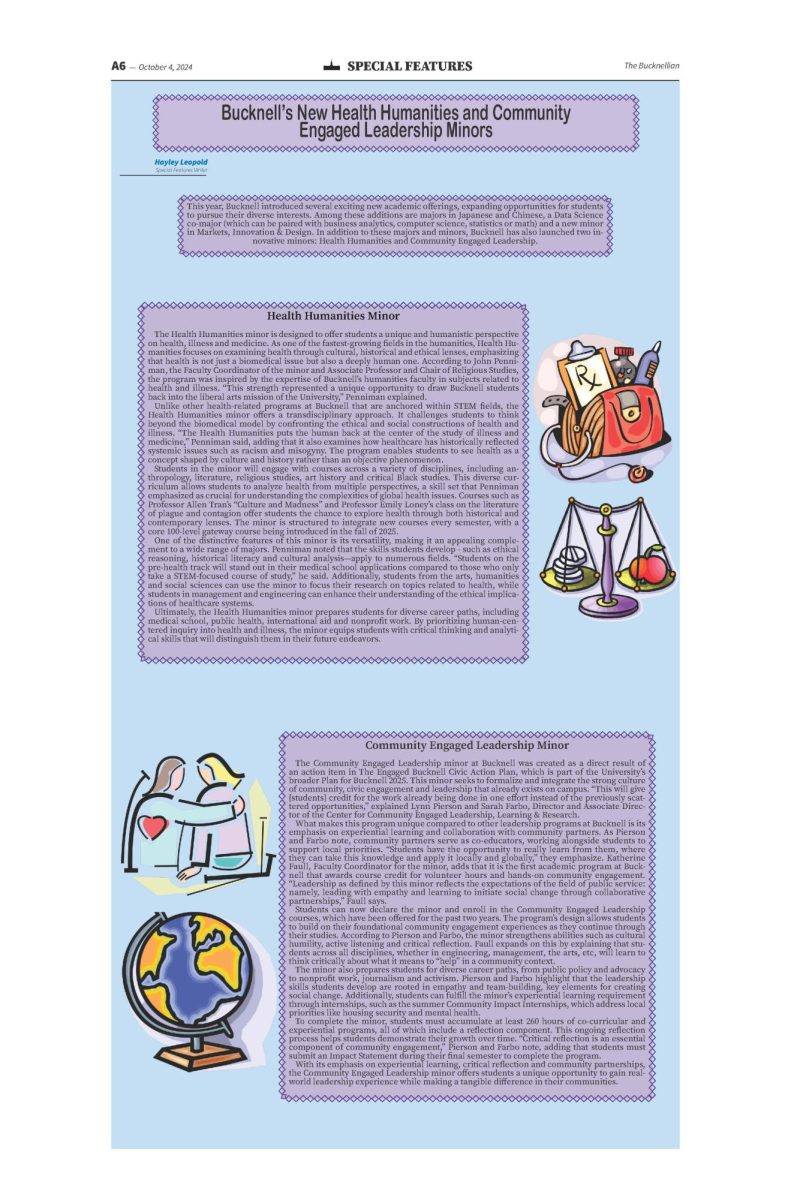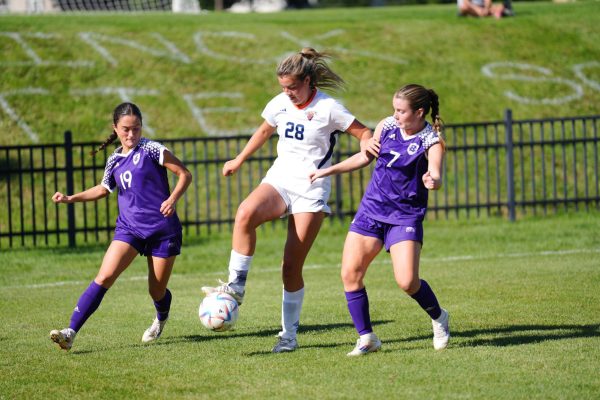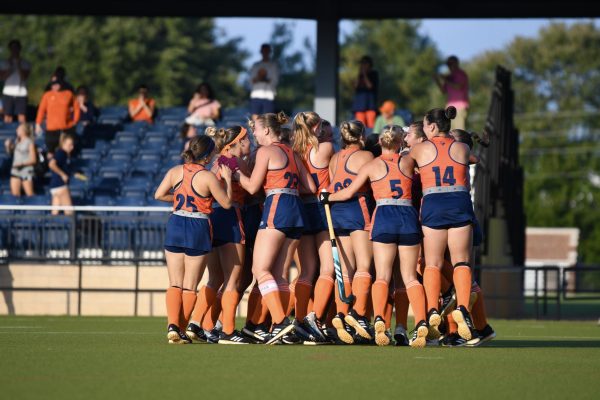Tenure: A ‘reciprocal dedication’ between University & faculty
November 11, 2016
Many University professors are tenured, meaning that they have earned the right to hold their academic post until retirement. As defined by Interim Dean of Arts & Sciences Karl Voss, tenure “is a recognition that [professors have] contributed to their discipline, their profession, their University, at a sufficient level.”
Roughly 75 percent of professors in the College of Arts & Sciences and 66 percent in the College of Engineering are tenured. The former percentile encompasses the School of Management.
The process of acquiring tenure is a six-year long endeavor, though there are particular cases in which professors attain experience before coming to the University that can count toward their tenure track process. Professors are reviewed for tenure at the University at the two-year, four-year, and six-year mark of their teaching at the University; these reviews are meticulously examined and influenced by a number of factors apart from the evaluations completed by students at the conclusion of each semester.
“[Evaluations are comprised of] input from students, the teaching you’ve done, the research and the scholarship you’ve done and getting the opinions of outside experts on the quality of that scholarship,” Voss said.
Voss added that the way in which professors are evaluated also varies depending on their disciplines.
“In some disciplines, conferences are huge, and published articles are huge, but we look at what the relative output is in the discipline that you’re in. And then we also look at service: how are you contributing to the life of the University? It’s really a holistic view of faculty members,” Voss said.
Throughout their tenure track, professors are accordingly instructed as to what the standards of evaluation are in each coming review. These reviews will produce hundreds of pages of material assessing each candidate working toward tenure.
“Faculty who may be struggling in the tenure track process will get a review letter that says ‘at the time of the next review, here are the things that you need to do,’ and they have some time to look at that and say, ‘is that what I want to dedicate myself to, or do I want to look for a different kind of position?’” Voss said.
Associate Professor of Anthropology Clare Sammells, who is currently on sabbatical in Spain, characterized the University’s tenure process as “very transparent and fair.”
“It’s still stressful, of course, because tenure is a major milestone in one’s academic career—similar to receiving a Ph.D. But at [the University] the expectations are clearly laid out, and periodic reviews let people know where they stand,” Sammells said.
A “fairly high” number of University professors have tenure, according to Voss. Still, others may be deemed inadequate to receive tenure and thus non-retained or fired by the University. In these instances, faculty members are allowed to continue working at the University for one more year.
“There’s not immediate termination because results come out in February … [and] most hiring at academic institutions for teaching is already done [at that time],” Voss said. “It really is a year so that you can make a proper set of applications to other institutions, or reorient your career if you’ve decided that teaching at a college or University is no longer what you want to do,” Voss said.
If, at any point throughout their tenured-track, professors are negatively reviewed, they can appeal that review based either on its substance or on procedural grounds. And while tenure decisions are a confidential matter in regards to the University administrative staff, the individual being evaluated is allowed to speak with whomever they wish about it at any stage in the tenure track process.
“They don’t have to keep their review a secret. They can say anything they want to anyone. It is their life; they should have that right,” Voss said.
Associate Professor of Religion Stuart Young shared that a dramatic decrease in student enrollment in the humanities courses has resulted in “administrative pressures … on our and like departments,” causing untenured professors to become increasingly concerned with just populating their courses, “as too many empty seats can be seen as indicating poor teaching,” Young said.
“As a tenured professor I am less concerned about having only a few students in my classes, which I think is actually better for the students who do enroll, as it provides them a much greater opportunity to engage directly with me and their peers in class—precisely what the liberal arts education is supposed to be all about,” Young said.
He added that teaching with tenure “is less of a ‘popularity contest.’”
“I think being a good teacher means, among other things, achieving a balance between giving students agency and guidance, leeway and direction, freedom and accountability. Being concerned about getting good course evaluations in order to get a renewed contract … can lead professors to skew this balance in order to create courses that are more ‘sexy,’ fun, or entertaining than substantive and challenging,” Young said.
Although Voss was not involved with the tenure review process last year, he acknowledged that there are nationally, “and sometimes at [the University],” controversial tenure cases.
“If you look into the Chronicle of Higher Education, you don’t have to look through many issues before you find an example of tenure where a decision was made—usually a negative decision—that upsets a variety of people. Sometimes there are accusations that negative tenure decisions are made for political reasons, or reasons that aren’t really relevant to the review process,” Voss said.
Voss discussed how the foremost tenure-related question he is asked relates to whether the acquirement of tenure—and consequential acquirement of job security—diminishes a professor’s efficaciousness in the classroom. He accordingly expressed his position that “it is very hard” for a professor to be motivated and work hard throughout the entirety of the tenure process “without it being who they genuinely are,” while adding the various benefits presented by tenure.
“We don’t see people work really hard for six years and then stop; that doesn’t happen. But what does happen when you get tenure, and this is one of the goals of tenure, is that you explore teaching and research in ways that might be much higher risk. You might try something interesting in the classroom that you don’t know is going to work,” Voss said.
Professor of Economics Matías Vernengo said that tenure has not substantially impacted him personally, yet he still believes that “it is essential.”
“I have seen it at work in other places, allowing faculty to say and teach things that might not be necessarily popular. It provides stability, necessary for thinking about education and research goals in the long run. The push against tenure is … detrimental to education, and research,” Vernengo said.
Associate Professor of Mechanical Engineering Indranil Brahma called tenure “a pretty vigorous and long process … [occurring] in an uncertain environment,” acknowledging the six or more years of attending undergraduate and graduate schools before undergoing a six year-long tenure vetting process.
“Some people think that it’s easy, some people think it’s unfair. But the main historical basis for tenure is academic freedom. Academic freedom means that you’re allowed to teach whatever you want, and it doesn’t have to be constrained by popular opinion … tenure allows me to explore areas that I would otherwise be hesitant to explore. It allows me to investigate high-risk, high payoff areas of research,” Brahma said.
In recognizing that different, more obscure institutions are experimenting with non-tenure systems, Voss nonetheless expressed his unwavering support of its institution at the University.
“Tenure is something that academics understand and recognize. Faculty members come to an institution and dedicate their careers to teaching, to doing research at the institution, and tenure is a reciprocal dedication from the institution to that faculty member. And they value that a lot,” Voss said.





